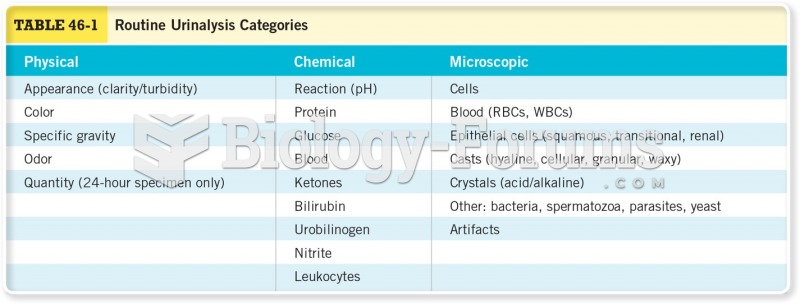|
|
|
According to research, pregnant women tend to eat more if carrying a baby boy. Male fetuses may secrete a chemical that stimulates their mothers to step up her energy intake.
Earwax has antimicrobial properties that reduce the viability of bacteria and fungus in the human ear.
The first documented use of surgical anesthesia in the United States was in Connecticut in 1844.
Though Candida and Aspergillus species are the most common fungal pathogens causing invasive fungal disease in the immunocompromised, infections due to previously uncommon hyaline and dematiaceous filamentous fungi are occurring more often today. Rare fungal infections, once accurately diagnosed, may require surgical debridement, immunotherapy, and newer antifungals used singly or in combination with older antifungals, on a case-by-case basis.
Between 1999 and 2012, American adults with high total cholesterol decreased from 18.3% to 12.9%






